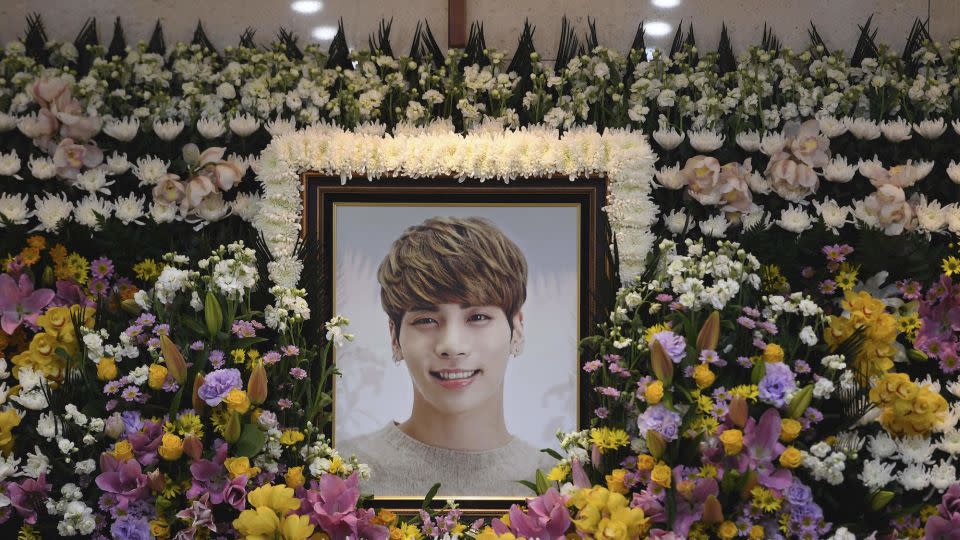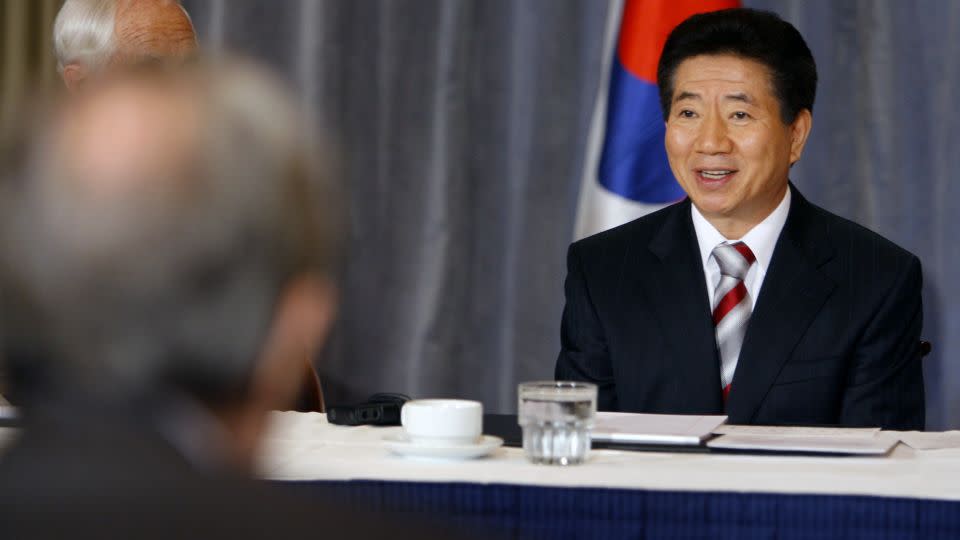Death of ‘Parasite’ star puts spotlight on pressures facing South Korean celebrities
Actor Lee Sun-kyun’s sudden death this week is the latest in a string of shock celebrity losses in South Korea, a country with one of the world’s highest suicide rates and where public figures are often expected to be paragons.
Lee, who received acclaim for his role as Park Dong-ik, the father of the wealthy Park family in the Academy Award-winning “Parasite,” was found dead in his car on Wednesday morning in what police said was a suspected suicide. His funeral was expected to be held later on Friday.
At the time of his death the 48-year-old father of two was being investigated by police over allegations of illegal drug use and had recently been through multiple rounds of lengthy questioning.
One of Lee’s lawyers told CNN this week that the actor felt “aggrieved” about the way police were handling the drug investigation, including how details turned up in local media.
Lee’s death comes as South Korea has seen a spate of suspected suicides among its celebrities in recent years, especially young K-pop stars.
Each time these deaths have reignited conversations about the mental well-being of South Korean celebrities and public figures, casting a spotlight on the pressures they face in the competitive and stressful Korean entertainment industry and the pitfalls for those deemed to have made transgressions.

In December 2017, superstar Kim Jong-hyun, better known as Jonghyun, took his own life at the age of 27. Two years later K-pop singer Sulli, formerly of the band f(x), was found dead at her home at the age of 25 in an apparent suicide.
Around six weeks later, fellow K-pop artist Goo Hara, formerly a member of girl band Kara, was found dead at 28. Police would not comment on a cause of death, but Goo previously revealed she was suffering from depression.
And in April this year, K-pop fans around the world were left heartbroken by the loss of Moon Bin, a member of the popular boy band Astro, at the age of 25.
K-pop idols in particular are known to be subject to intense scrutiny and high expectations from their strict management, which has been linked to a mental health crisis in the industry.
For years it was not uncommon for K-pop stars to be expected not to have relationships, with some even having a “no dating” clause in their contracts.
“Scandals involving drinking, drugs, or even dating not only make waves in the entertainment news section but also the finance news section because many of the biggest Korean music management companies are also publicly traded stocks on the Korean stock exchange,” music industry executive Bernie Cho told CNN in 2018 when two major stars of the time confirmed they were dating.
Attitudes toward dating have slowly begun to change, in part because fans have become more willing to accept relationships between stars. But South Korea’s entertainment industry remains a high-pressure environment with intense training regimens and expectations from fans and industry power brokers alike.


Teacher protests
South Korea’s mental health crisis stretches across class divides and touches all parts of society.
In 2021, the suicide rate in South Korea was 26 out of every 100,000 people, according to the country’s Health and Welfare Ministry. South Korea also has the highest rate of youth suicide among the Organization for Economic Co-operation and Development (OECD) nations. In Japan, the OECD’s figure is 15.7 per 100,000 people while in the United States it is 14.1 per 100,000.
In September, hundreds of thousands of teachers across the country held mass protests after the suspected suicide of a teacher that was widely blamed on South Korea’s high-pressure education system and the burden it places on teachers.
Government data shows 100 public school teachers in South Korea – mostly elementary school teachers – took their own lives from January 2018 to June 2023.
South Korean politics has also seen high-profile cases. In 2009, former president Roh Moo-hyun took his own life amid an investigation into a bribery scandal that had tarnished his reputation.

Following Sulli and Goo’s deaths, Paik Jong-woo, a psychiatrist and the director of the Korea Suicide Prevention Center, attributed part of the high suicide rate to social stigma. Fewer South Koreans who suffer from depression seek help than in other developed countries, studies show.
Those in the entertainment industry might be especially at risk, according to Paik.
“Artists tend to experience emotions more vividly and because their job is being loved by the public, they cannot help but be more sensitive to public views,” he said.
Paik explained that celebrities often cannot access mental health professionals due to fear of public shame and lack of time in their schedules. An average day for a K-pop star can be 16 hours or longer, filled with everything from dance practice to singing lessons, language class and camera training.
“There needs to be special attention to prevent celebrity suicides,” Paik said.
Lee Gyu-tag, a professor of cultural studies at George Mason University Korea in Incheon, thinks South Korea’s intesely online culture also plays a role.
“I believe that the internet is also having an influence in imposing stricter moral standards on actors and singers in Korea,” he told CNN.
“Whether they did drugs or committed illegal crimes, if it is not a serious mistake, they should be punished by law, and that’s it. But the public seem to think that people in the entertainment business deserve criticism or shameful comments on the internet.”
Questions over police probe
Lee’s death came while he was being investigated for illegal drug use at time when South Korea’s conservative government has been pushing a crackdown on drugs and the police are under pressure to deliver results.
Like many places in East and Southeast Asia, South Korea has some of the world’s strictest drug laws with lengthy prison sentences and an intense social stigma attached to drug use.
According to South Korean police, Lee had claimed he was tricked into using drugs and subsequently blackmailed by an individual. Lee filed a lawsuit against the alleged blackmailer, according to police, who added they had received a tip about his alleged drug use before he filed suit.
But throughout the investigation, Lee’s drug tests had all come back negative, police added. Police have since closed the drug investigation following’s Lee’s death.
A lawyer for Lee, who did not want to be named due to the sensitive nature of the case, said his client was upset that the police investigation was built on the word of people he accused of blackmailing him, rather than on scientific evidence. He had repeatedly denied intentionally taking illegal drugs.
There “was a dispute between Lee’s testimonies and the blackmailers’ testimonies,” the lawyer said, adding that details of the investigation being leaked to the media also caused Lee pain.
Incheon police offered their condolences to Lee’s family on Wednesday, expressing regret that details of his drug investigation had been prematurely made public before its completion, despite their efforts to prevent it.
“It’s difficult to say that the details came from the police, as there are other agencies in the legal system that have access to such information,” police added.
South Korean law prohibits those involved in a criminal investigation from releasing facts about the suspect before a public indictment is released.
How to get help: In the US, call the National Suicide Prevention Lifeline at 1-800-273-8255. The International Association for Suicide Prevention and Befrienders Worldwide also can provide contact information for crisis centers around the world.
For more CNN news and newsletters create an account at CNN.com

